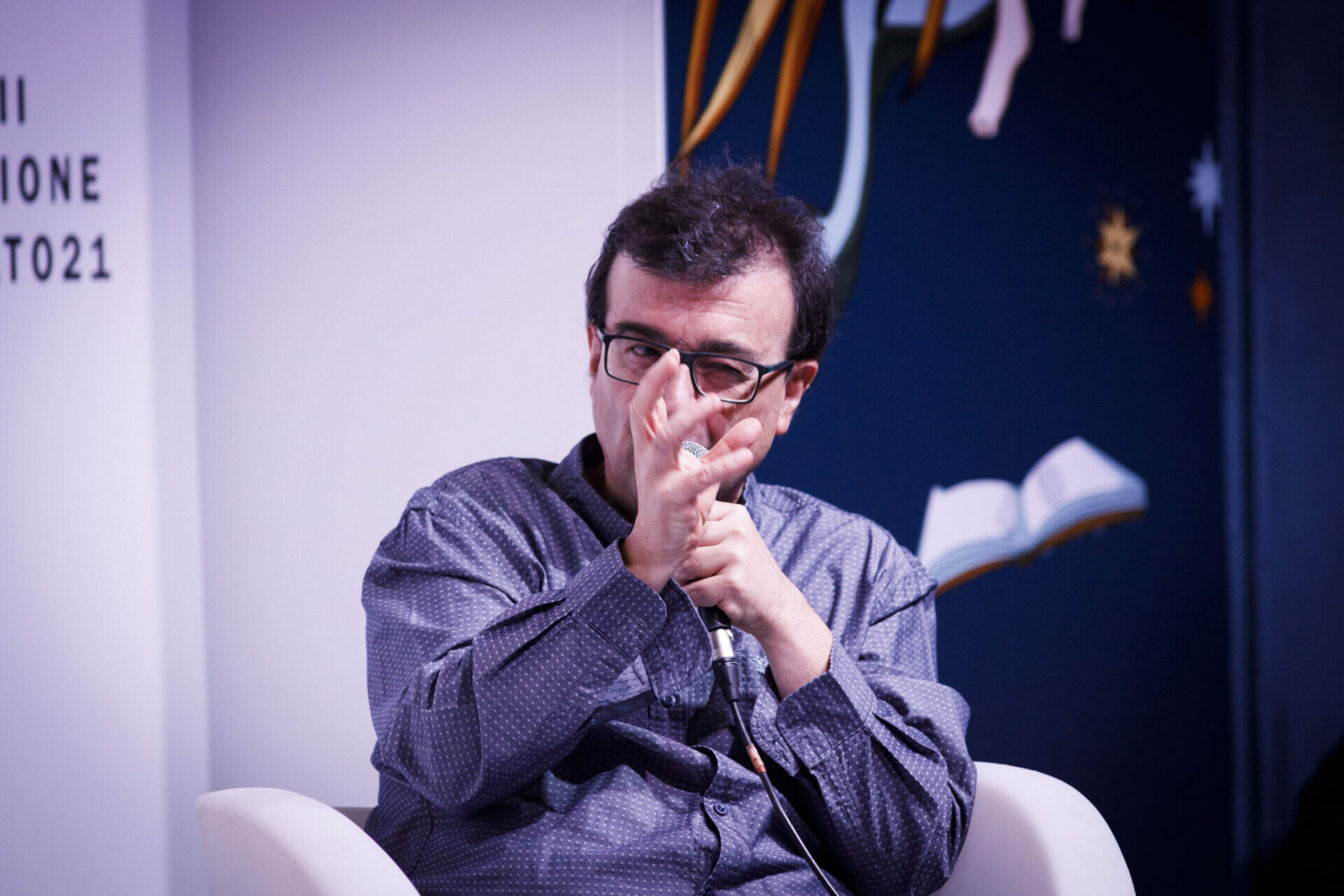
When asked about his approach to writing, Spanish novelist Javier Cercas seems to have a favourite answer. “Milan Kundera rightly says that we novelists only have to respond to Cervantes,” he explains, “And the first rule he gave us was this: do as you please”. On October 14th, Cercas appeared at the Turin International Book Fair to present his latest book, Independencia (Independence), and while there he took the opportunity to strongly reinforce his stance. After a few specific questions about the book, the presentation turned into a beautiful lecture on the duties and freedoms of a writer. The claims Cercas made here are very much worth paying attention to.
With his work translated into more than 20 languages and the winner of dozens of literary prizes to boot, Cercas is considered one of the finest Spanish language novelists writing today. But despite his huge success, he is not the kind of man who rests on his laurels. Ever since he first gained recognition with the publication of Soldiers of Salamis, in 2001, he has been known for his non-fiction novels, which focus on the Spanish Civil War and the Francoist State. But in 2019, he did something quite unexpected: he wrote a noir thriller, Terra Alta.

Two kinds of books
Independencia is the second episode in the noir tetralogy which Javier Cercas started writing two years ago. The series tells the story of Melchor Marín, who is what might be called a good “bad cop”. In Cercas’ latest novel, Marín delves into a case of sextortion against Barcelona’s mayor. A gripping, brilliantly written novel, Independencia investigates the toxicity of inherited power within elites.
But despite the gravity of the topics he treats, the decision to switch to noir was risky for an author like Cercas. As he himself observed at his presentation on October 14th, many readers and critics still consider crime literature as a minor genre, but they couldn’t be more wrong. “Genres are bullshit.” He explained, “Ultimately, there are only two kinds of books: good ones and bad ones.” And in many cases, the best books are not meant to be difficult. Don Quijote, Shakespeare’s comedies and Lord Byron’s poems were all born to entertain. Still, they are incomparable works of art. “I hope that literature will return to its popular vocation” he added, and it’s hard to disagree with his stance.
In fact, there is nothing new in the attention that Javier Cercas pays to his audience’s entertainment. When Soldiers of Salamis came out, Nobel Prize winner Mario Vargas Llosa observed that the work,
…would deserve to have countless readers, in these times when light literature, so-called entertainment literature, has become fashionable, because then they would see that serious literature, that which dares to tackle the big issues and shuns ease, is not boring at all, and, on the contrary, is also capable of enchanting its readers, as well as affecting them in other ways.
In other words, there’s no reason why a great piece of literature shouldn’t also be fun.

A beautiful word
When they hear the title of Cercas’ latest book for the first time, some of his readers might not even realize it is a crime story. Many of them assume they will read a book about Catalonia’s political situation. This is partly true, but just as the novel consists of different layers, so the title points in different directions too. “It is a beautiful word,” Cercas explained, “That’s why I chose it. It’s incredibly polysemic.” In fact, political independence is just one of its possible meanings. This “beautiful word” applies to individuals too, and, ultimately, to writing itself. According to Cercas, this quality is key to good literature, and this is what he constantly strives for.
It would be easy to keep doing what one is notoriously good at. It would be easy to let success choose your stories for you. But this is not what good writers do. As Cercas brilliantly put it at the conference “I might be a true coward in my personal life, but as a writer, I must always be brave.”
After all, he only answers to Cervantes.







